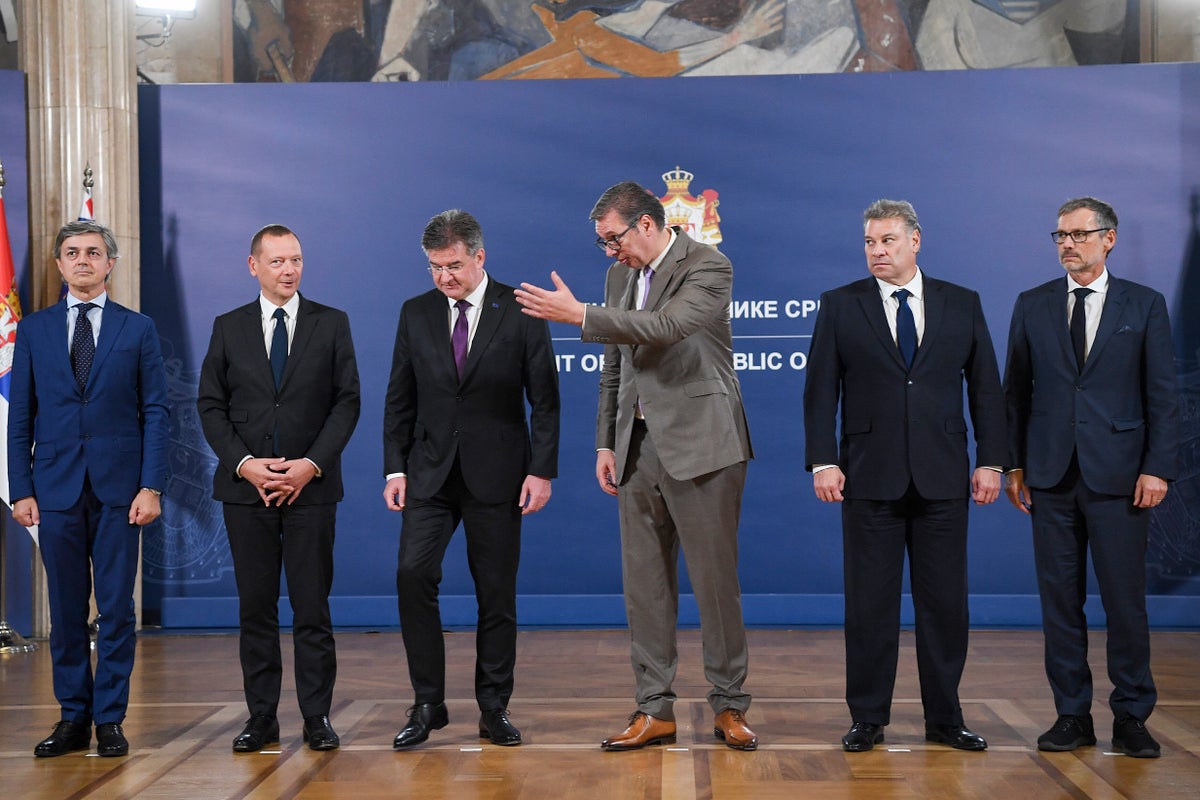
The European Union is set to ramp up pressure on Serbia and Kosovo to normalize their relations by enlisting the leaders of three heavyweight member countries and senior officials to make a major push to get the former war foes to set aside decades of differences.
Serbian President Aleksandar Vucic and Prime Minister Albin Kurti distrust each other and are not likely to meet face to face. But they are due to hold talks separately with the leaders of France, Germany and Italy, plus the two EU officials supervising a stuttering “dialogue” between them.
The meetings in Brussels come on the sidelines of an EU summit. Fears are high of a resumption of the violence that characterized their ties during a 1998-99 war and since Kosovo unilaterally broke away from Serbia in 2008. Belgrade still considers Kosovo a Serbian province and has never recognized its independence.
Both Kosovo and Serbia want to join the EU, but they’ve been warned that they must sort out their differences first.
The Europeans have been spurred into action by a major gun battle in northern Kosovo on Sept. 24, when about 30 Serb gunmen crossed into northern Kosovo, killed a police officer and set up barricades. Three gunmen were killed in the shootout with Kosovo police.
Thursday’s talks are aimed at putting into action an agreement that Vucic and Kurti reached in February, although the two have raised issues concerning that deal since. The idea is to work on new “proposals and ideas” floated in exploratory talks last weekend, said Peter Stano, spokesman for EU foreign policy chief Josep Borrell, who supervises the Belgrade-Pristina Dialogue.
“I hope for a good atmosphere, but it won’t be easy,” Vucic told Serbian state television network RTS on the eve of the meetings. “We are most certainly open for discussion, and they are knocking on an open door.”
The big problem is that neither he nor Kurti want to be the first to make concessions without guarantees that the other will reciprocate.
The EU and U.S. are pressing Kosovo to allow the creation of an Association of the Serb-Majority Municipalities to coordinate work on education, health care, land planning and economic development in communities of northern Kosovo mostly populated by ethnic Serbs.
Kurti fears such an association would be a step toward creating a Serb mini-state with wide autonomy.
The last thing the Europeans want is more conflict in their backyard. The war between Serbia and Kosovo left more than 10,000 people dead, mostly Kosovo Albanians.



.png?w=600)



